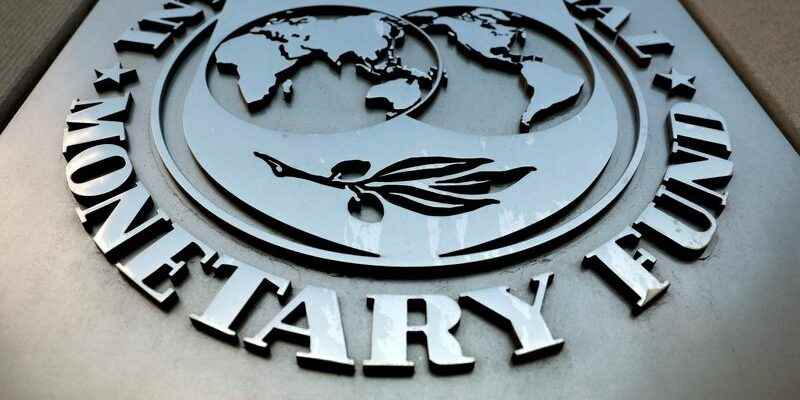by David Lawder
WASHINGTON (Reuters) – The International Monetary Fund on Tuesday lowered its 2023 global growth forecast to factor in tensions related to the war in Ukraine, inflation and rising interest rates, stressing that the situation could significantly degrade.
In its new World Economic Outlook, the IMF says that around a third of the global economy is likely to contract next year.
“The three largest economies, the United States, China and the eurozone, will continue to stall,” its chief economist, Pierre-Olivier Gourinchas, said in a statement. “In short, the worst is yet to come and for many people 2023 will be experienced as a recession.”
IMF expects global gross domestic product (GDP) growth to slow to 2.7% next year, from 2.9% forecast in July, due to the impact of rising rates on the economy America, the surge in gas prices in Europe and the persistence in China of health restrictions such as real estate difficulties.
For this year, it maintains its forecast at 3.2%, with better-than-expected growth in Europe making it possible to offset the American slowdown. But this figure reflects a marked slowdown after the 6% rebound enjoyed by the global economy last year.
In the United States, growth is expected to be only 1.6% this year, 0.7 percentage points less than expected in July, after the unexpected contraction in GDP in the second quarter. For 2023, the Fund is still expecting growth of only 1.0%.
A US Treasury official said ahead of the release of the numbers that the US economy remained “fairly resilient, even in the face of significant headwinds.”
INFLATION, NUMBER ONE PRIORITY
The IMF explains that its forecasts remain dependent on the ability of central banks to fight inflation while avoiding an excessive tightening of monetary policies which could precipitate the world economy into “an unnecessary severe recession”, disrupt financial markets and penalize developing countries.
However, he recognizes that the fight against inflation remains the top priority.
“The hard-won credibility of central banks would be undermined if they made another error of judgment on the stubborn persistence of inflation,” said Pierre-Olivier Gourinchas. “That would prove even more damaging to future macroeconomic stability.”
The US Federal Reserve and the European Central Bank (ECB) have long considered the acceleration of inflation to be a “transitory” phenomenon, which has delayed the start of the rise in interest rates.
The IMF estimates that global inflation should have peaked at 9.5% in the third quarter of this year and will drop to 4.7% by the end of 2023.
He also points out that a “plausible combination of shocks” including a 30% jump in oil prices could cause growth to fall to 1.0% next year, a level at which real household incomes would decline.
This “gloomy scenario” also includes a marked decline in real estate investments in China, a significant tightening of financial conditions linked to sharp depreciations in emerging currencies and persistent tensions in the labor markets.
The IMF estimates at 25% the probability that world growth will fall below 2% next year, a situation that has occurred only five times since 1970, and at 10% that of a contraction in world GDP.
THE DOLLAR, SOURCE OF TENSION
The potential shocks mentioned by the Fund could prolong the current phase of high inflation, and therefore no doubt the appreciation of the dollar, already at its highest since the beginning of the 2000s against other currencies.
However, explains the IMF, such a situation would particularly penalize emerging countries because a durably strong dollar would increase the risk of some of these countries defaulting on their debt.
Debt relief for emerging countries should be one of the main topics of discussion at the meetings of the IMF and the World Bank which begin this Tuesday in Washington and Pierre-Olivier Gourinchas said that emerging countries must now prepare in difficult times.
For most of them, he added, the best strategy must combine monetary policy giving priority to price stability, currency adjustment and “the preservation of large foreign exchange reserves in anticipation of the where financial conditions will actually get worse”.
(Report David Lawder, French version Marc Angrand)
Copyright © 2022 Thomson Reuters
